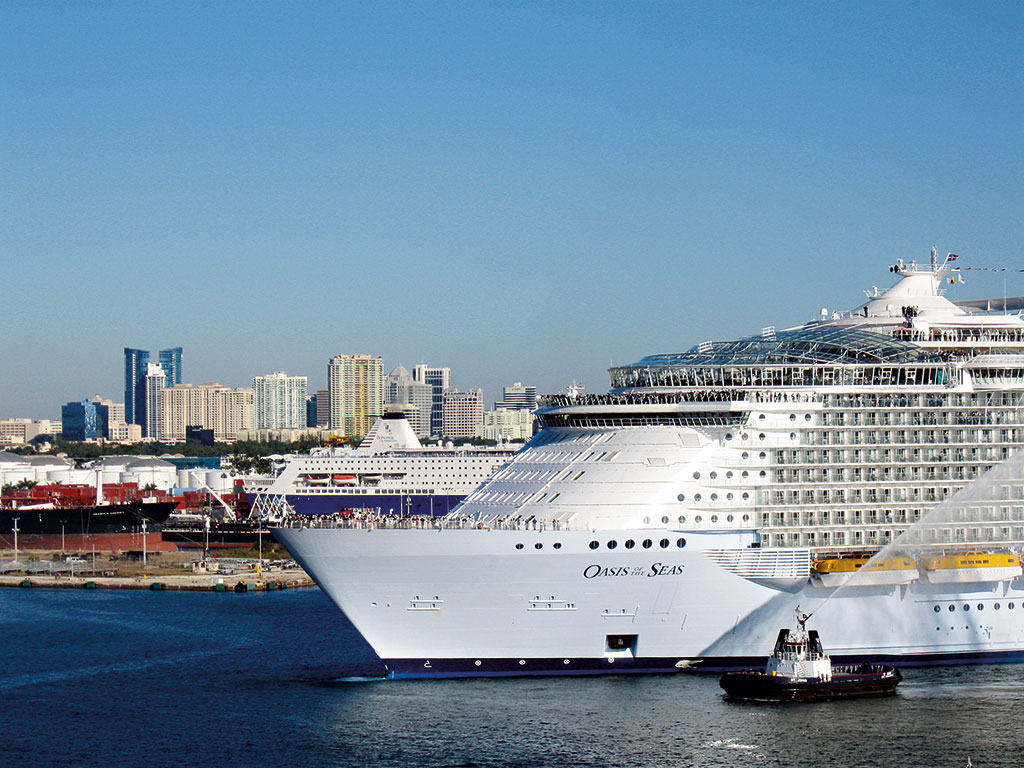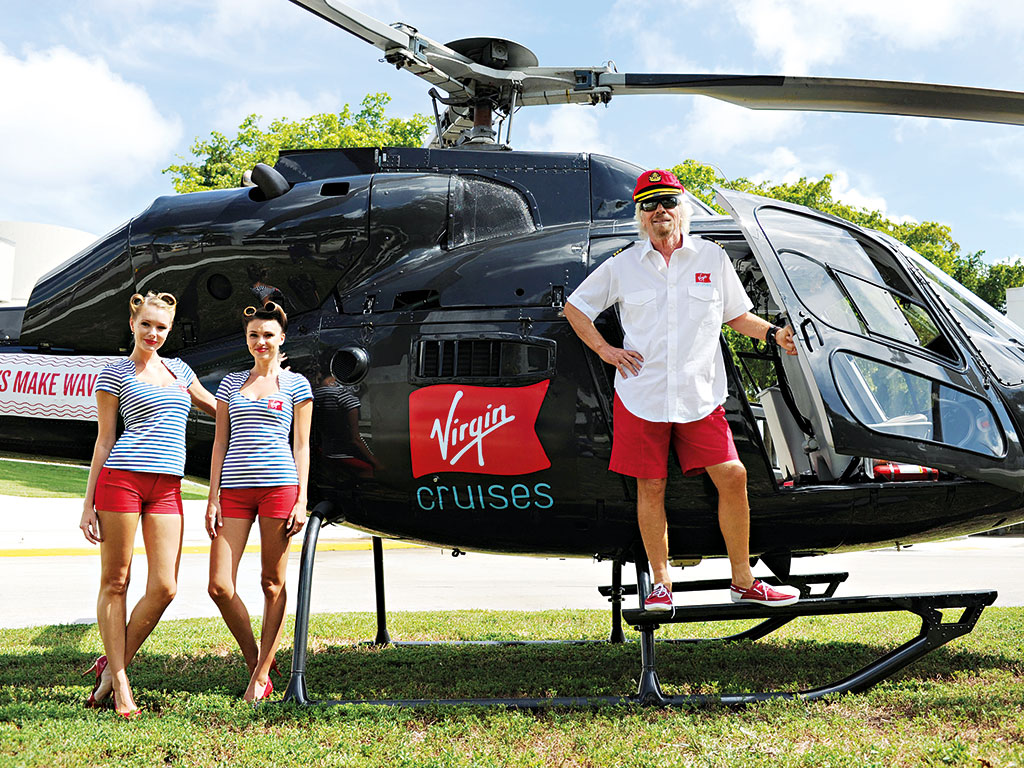It is estimated that more than 23 million people will set sail aboard a cruise ship in 2015. Organisers are attempting to attract holidaymakers by adding thousands of port calls in “new, exotic locations, especially in the fast-growing Asian market”, according to the Cruise Lines International Association (CLIA) annual report.
Adam M Goldstein, CLIA Chairman and President/COO of Royal Caribbean Cruises, added: “From new ports around the globe to the investment by CLIA’s member cruise lines in new, innovative ships, it’s an exciting time for the cruise industry and cruise passengers. This year will prove to be another step forward for the entire industry as our members continue to strive to make cruising the best overall vacation experience.”
But not everyone seems to share Goldstein’s positive outlook. 61 percent of cruisers hail from the US, with the next biggest market behind that being the UK and Ireland, making up just eight percent. In simple terms, what this means is that there are a whole host of people from around the world that have never been, nor have ever shown any interest in being, a passenger on a cruise ship. And in a market that is struggling to attract a new generation of traveller, as well as having to contend with the fact that many of its loyal customers are ageing fast, it’s becoming clear that cruise industry has some fairly choppy waters ahead of it.
The speciality cruise market, which Branson’s vessels will join, is one of the few industry segments that has seen positive growth in recent years
Image crisis
Part of the problem, according to Arnold Donald, CEO of cruise company Carnival, is that those who opt out of jumping aboard a cruise ship do so based on “negative, preconceived notions of what cruising is”. A big obstacle that the industry is currently trying to overcome, therefore, is how to convince people to try something that they already believe they won’t like.
“It’s clear to me that as an industry we have not done a good enough job effectively communicating to the public… To those who don’t know what cruising is”, he told reporters in a conference call last year. “It’s not just 3,000 people at a buffet line and super crowding.”
It is also clear that the industry is going through a bit of an identity crisis – a fact made all the more obvious when Donald himself is unable to offer a definition to the contrary during the interview. “We just haven’t effectively conveyed [what the experience is]”, he continued. “And also we haven’t effectively conveyed the value of what cruising is compared to land vacations. Getting a neighbour or a relative saying, ‘Look, it’s not what you think it is—and you’re coming with us the next time’… There’s nothing more powerful than that.”
Put simply, if the CEO of a cruise company is struggling to tell people why they should spend their holiday aboard one of his ships – especially with so many other destinations and options out there for holidaymakers to choose from – then it is no wonder that the industry has found itself in such a difficult situation. But it is one that it must attempt to rectify, especially if it wishes to make ground in China’s burgeoning market, where few travellers have any idea what a cruise actually entails, or indeed what they should expect from one.
About-turn
But all is not lost, and if there is one man who can breathe some much-needed life into this image-conscious industry, it is Sir Richard Branson. The founder of the Virgin Group recently announced his plan to shake up the market, with his first ship scheduled to set sail from PortMiami in 2020 under the Virgin Cruises banner. To further emphasise his commitment to this new venture, he has already entered into a binding agreement with the Italian shipbuilding company Fincantieri and commissioned the construction of three new mid-sized ships.
“This is a very exciting day for Virgin and travellers around the globe”, Branson said in a statement on the venture. “We now have the right partners in place to build a world-class cruise line that will redefine the cruising experience for good. The Virgin Cruises approach will appeal to cruisers and non-cruisers alike, and we look forward to being in Miami and delivering an experience for people who want a new way to cruise.”
Five years ago, Royal Caribbean built the world’s largest cruise liner, known as the Oasis of the Seas, which weighs approximately 225,000 tonnes has the capacity to accommodate 6,300 passengers. Branson’s decision to build three smaller vessels rather than entering into the market with a super-sized cruiser of his own is an early sign that he has done his homework, as according to the CLIA, there is a growing trend towards ships that offer unique designs, amenities and experiences. In fact, the speciality cruise market, which Branson’s vessels will join, is one of the few industry segments that has seen positive growth in recent years, growing as much as 21 percent annually between 2009 and 2014.

Making waves
Rather than attempting, and then failing, to convey what Virgin Cruises is all about – like so many of its competitors are currently struggling to do – Branson and his team want customers to tell them what they want out of a holiday on the high seas, not the other way round. “We are committed to making waves in the cruise industry”, said Tom McAlpin, President and Chief Executive of Virgin Cruises, in an interview with Travel Weekly. “We’ve gone out to our customers to ask them what they want to see from our ships.
We’ve designed the shell and the skeleton of our ships and we have plans for what might feature on each deck, but we’re really keen to get feedback to see what people want us to create.”
Customers will have more than enough time to give their feedback, as the three mid-sized ships, which weigh roughly 110,000 tonnes each, are not going to be ready until 2020, 2021 and 2022 respectively. Virgin Cruises management might be waiting for the customer input in order to tailor the experience accordingly, but one thing that they are absolutely sure of is the market that they want to target.
“Virgin Cruises will be for the young at heart and we will be very focused on the customers we want to attract”, added McAlpin. “Too many of cruising’s larger brands try to be something to everyone and end up not standing out and diluting their message… We’re going against the grain because we’ve decided not to build larger ships – instead, we will have mid-sized ships that will be very intimate.”
The venture is still in the early stages and it will take some time before travellers will get a clear picture of what Branson and his team have in store. However, if there ever was a businessman and a brand capable of making waves in a market burdened by such a massive identity crisis, then Branson and his team will surely be the ones to achieve it.





